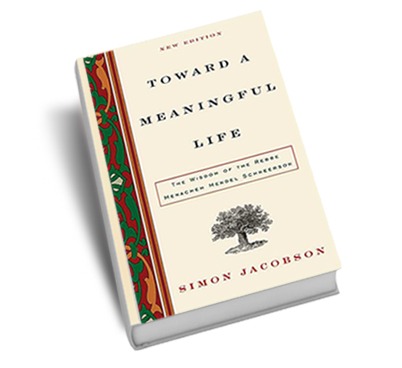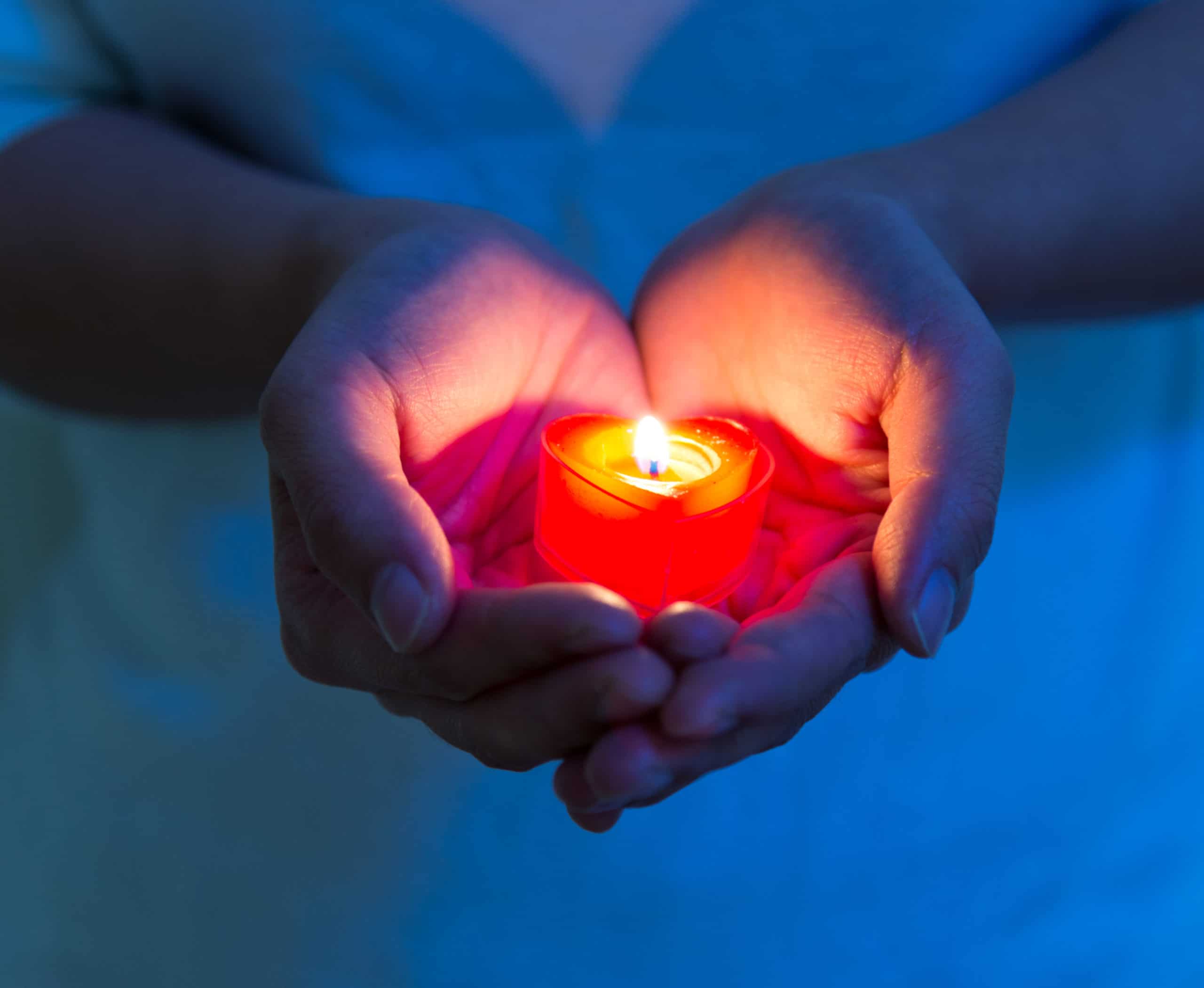And the living shall take to heart — Ecclesiastics, 7:2
The soul never dies — The Rebbe
In 1950, after the passing of his predecessor and father-in-law, the Rebbe emphasized that it was important not to eulogize the deceased, but to let their good deeds speak for them. Citing a letter that his father-in-law wrote in 1920, after the passing of his own father, the Rebbe explained that a true leader is like a shepherd who never abandons his flock, leaving behind a philosophy and a clear course of action. Indeed, he explained, “he is even more present than during his lifetime, since his soul is freed from the physical constraints of time and space.”
*****
What Does Death Really Mean?
Death: The very word strikes fear in people’s hearts. They consider death as unfathomable as it is inevitable. They are barely able to talk about it, to peer beyond the word itself and allow themselves to contemplate its true implications. This is an understandable reaction, given the fact that so many people think of life as nothing more than a state in which the human body is biologically active. But it is time to ask ourselves: What happens after death, if anything? What does death really mean? How should the surviving loved ones react?
The mystery of death is part of the enigma of the soul and of life itself; understanding death really means understanding life. During life as we know it, the body is vitalized by the soul; upon death, there is a separation between body and soul. But the soul continues to live on as it always has, now unfettered by the physical constraints of the body. And since a person’s true character — his goodness, virtue, and selflessness — lies in the soul, it is logical to assume that he will ascend to a higher state after fulfilling his responsibilities on Earth.
Modern physics has taught us that no substance truly disappears, that it only changes form. A tree, for instance, might be cut down and used to build a house, or a table, or a chair. Regardless of how the form changes, the wood remains wood. And when that same wood is burned in a furnace, it again changes form, becoming an energy that gives off heat and gas. The tree, the chair, and the fire are all merely different forms of the same substance.
If this is the case with a material substance, it is even more so with a spiritual substance. The spiritual life force in man, the soul, never disappears; upon death, it simply changes from one form to another, higher form. This may be difficult to comprehend at first, since we are so dependent on using our sensory tools to get through life. With wood, for example, it is easier to hold a chair in our hands than to hold fire; and yet, anyone who has ever seen or felt a fire cannot doubt for a moment that it exists.
No matter what physical ailments might befall a person, they are just that: physical ailments. Nothing that happens to the flesh and blood diminishes in any way the soul’s power, which is purely spiritual. It is inappropriate, therefore, to use the term “afterlife” to define what happens after death. “Afterlife” implies that we have entered another, separate place, whereas death is actually a continuation of life as we know it, only in a new, higher form. The chapter in Genesis discussing the death of Sarah, for instance, is called “The Life of Sarah.” The chapter discussing the death of Jacob is called “And Jacob Lived.” How odd it now seems to name death “Life”!
So before we can truly answer the question “What is death?” we must first ask, “What is life?” By medical definition, life takes place when one’s brain and heart are functioning. Yet a person can be biologically alive but not alive at all; breathing and walking and talking are only the manifestations of what we call life. The true source of life, the energy that allows the body to function, is the soul. And the soul, because it is connected to G-d, the giver of life, is immortal. While the manifestations of life may cease upon death, the soul lives on, only in a different form.
How can a mortal human being connect to eternal life? By living a material life that fuses body and soul, thereby connecting to G-d. A person who transforms his or her body into a vehicle for love and generosity is a person who nurtures his or her eternal soul. It is by giving life to others that one becomes truly alive.
To a person for whom life consists of material gains, death indeed represents the end. It is the time when fleeting achievements come to a halt. But to a person for whom life consists of spiritual gains, life never ends. The soul is fueled by the inexhaustible energy of the good deeds a person performed on Earth, and it lives on materially through his or her children and the others who perpetuate his or her spiritual vitality. As the sages say, “Just as his descendants are alive, he, too, is alive”
We often have a hard time distinguishing between biological life and spiritual life, or true life. We are distracted by the many material trappings of biological life. Once the soul leaves the body, though, we can clearly see how it lives on, how that soul inspires people to perform good deeds, to educate and help others, to live G-dly and spiritual lives. It is when a righteous person physically departs the Earth that he or she begins to exert the most profound influence.
A revered and aged rabbi, when he was very near death, asked that he be moved into the study hall where he delivered his discourses. “Soon I am going to Heaven,” he told his followers, “but I am leaving you all my writings, and along with them, my spirit.”
When his grandson heard these words, he began to weep. His grandfather, weak with illness, turned to him and said, “Emotions? Emotions? No. Intellect, intellect.” From that moment on, the boy thought only of the life of his grandfather’s soul, not the death of his body.
What Does Death Mean For The Survivors?
While death represents the soul’s elevation to a higher level, it nevertheless remains a painful experience for the survivors. At the same time, it must serve — as must all experiences in life — as a lesson. We must see death not as a negative force, but as an opportunity for growth.
Since death provokes such strong emotions, we must have a clear channel through which to express them, to go about healing in a constructive way. When a loved one dies, two powerful and conflicting emotions are aroused: sadness over the loss and confusion about the future. The sages teach us that it would be barbaric not to mourn at all, but that we should not mourn longer than necessary. A week of mourning is sufficient; otherwise, a person’s death becomes a presence unto itself, continuously saddening us and impeding our progress in life.
But why should we restrain our natural pain and sadness over a loved one’s death? Grief is a feeling, after all, and feelings cannot be controlled, can they? Isn’t it wrong to set limits on our grief, or to try to channel it in a certain direction?
True, feelings are feelings, but we can choose whether to experience them in a destructive or productive light. The key in this case is to understand death for what it is, to celebrate its positive element: A mourner must realize that the soul of his or her loved one has now reached an even greater place than it occupied during its time on Earth, and that it will continue to rise. It is the act of reconciling this positive realization against our grief that can turn death from a traumatic experience into a cathartic one.
To diminish our expression of grief is unhealthy and inappropriate, but to allow our grief to overwhelm us is to selfishly overlook the true meaning of death — the fact that a righteous person’s soul has found an even more righteous home.
Because the strongest bond between a mother and daughter or a husband and wife is a spiritual one, it remains strong after death. Mourning also helps us retain this bond, for the soul of a departed person, eternal and intact, watches over the people with whom she was close. Every gracious act gives her great pleasure and satisfaction, particularly when such acts are committed in a manner that she taught, whether by instruction or example.
Her soul is fully aware of what is happening to the friends and relatives she has left behind. The soul is distressed when they experience undue grief or depression, and it rejoices when they move beyond their initial pain and continue to build their lives and inspire those around them.
There is no way to replace a departed loved one, for each person is a complete world. But there is a way to help fill the void. When family and friends supplement their customary good deeds with further virtuous acts on behalf of the departed, they continue the work of his or her soul. By performing such acts in the memory of a loved one, we can truly build a living memorial.
But after all is said and done, death can be an incomprehensible, devastating experience to those who are left behind. After all the rationalizations, all the explanations, the heart still cries. And it should cry.
When a friend or relative is grieving for a loved one, do not try to explain; just be there with them. Soothe and console them, and weep with them. There is nothing you can really say, for no matter how we might try, we must accept that we often do not understand G-d’s mysterious ways.
Ask of G-d to finally bring the day when death shall be no more, when “death shall be swallowed up forever and G-d shall wipe the tears from every face” (Isaiah 25:8).
Buy the best-seller, Toward a Meaningful Life starting at $13.99, from our MLC Shop, Amazon or Kindle. Or sign up for our weekly email to receive a dose of meaning every Thursday night.










There is no leaning in life and death.
Thats pretty hot
Life, death. Only an illusion.
they are the same just like pain and pleasure there’s a peak and subsides
Thank you for these reflection.
I do believe that we need to focus on the good and believe that the soul keep on living.
Today someone dear to me dyed and by believing that the soul is ‘alive’ it does easy the pain.
Give up on your body is death.
To understand a Word and the Letters that made it REAL you must first know who made those Letters which form that Word for only that Person can know the understanding of the Words Mentioned.
Spell out God like you did all other words, let them that great opinion.